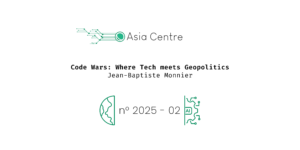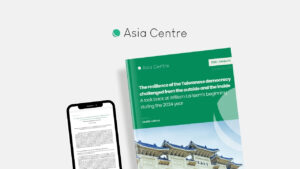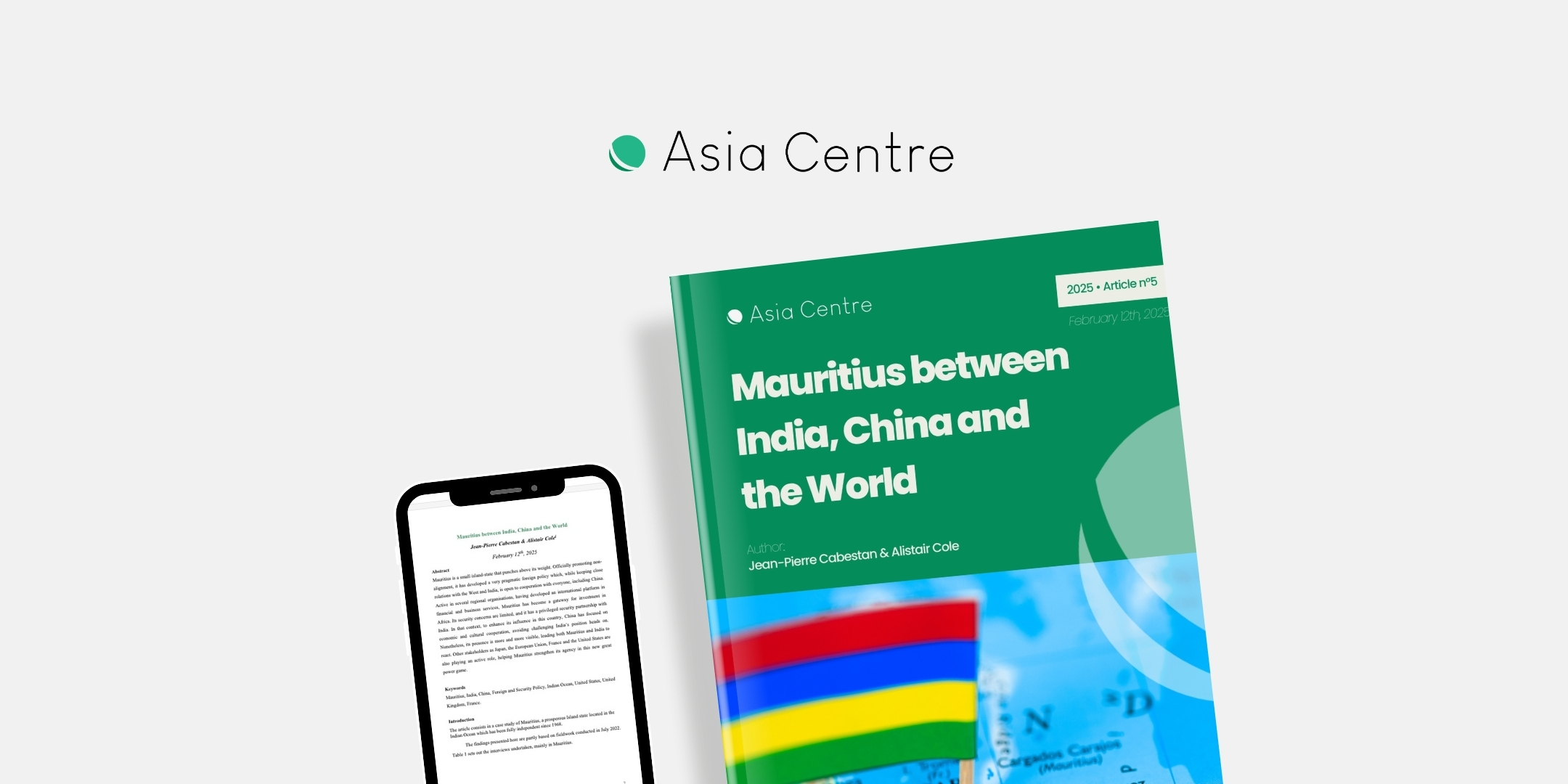Jean-Pierre Cabestan, Professor Emeritus at Hong Kong Baptist University and Senior Researcher at Asia Centre in Paris, and Alistair Cole, Professor of Political Science at Sciences Po Lyon and member of the TRIANGLE laboratory (UMR 5206), published a new analysis about the Mauritius situation, at the crossroads of global power dynamics and regional partnerships.
Read the whole analysis by clicking the PDF button.
Abstract:
Mauritius is a small island-state that punches above its weight. Officially promoting non-alignment, it has developed a very pragmatic foreign policy which, while keeping close relations with the West and India, is open to cooperation with everyone, including China. Active in several regional organisations, having developed an international platform in financial and business services, Mauritius has become a gateway for investment in Africa. Its security concerns are limited, and it has a privileged security partnership with India. In that context, to enhance its influence in this country, China has focused on economic and cultural cooperation, avoiding challenging India’s position heads on. Nonetheless, its presence is more and more visible, leading both Mauritius and India to react. Other stakeholders as Japan, the European Union, France and the United States are also playing an active role, helping Mauritius strengthen its agency in this new great power game.





